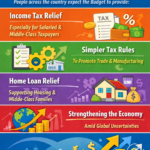Adoption under Juvenile Justice Act :Child born in a live-in-relationship must be treated as a child born to a married couple: Kerala HC

IN a significant ruling, the Kerala High Court held that a child born in a live-in-relationship would be treated as a child born to a married couple for the purpose of surrendering of a child for adoption under the Juveline Justice (JJ) Act.
It added if the surrender was by one parent and the whereabouts of the other parent was not known, the child should be treated as an abandoned child which would warrant an inquiry by the Child Welfare Committee (CWC) to trace the whereabouts of the other parent.
“The woman in a live-in-relationship, acknowledging the biological father of the child, out of such a relationship, will have to be treated as a married woman for the purpose of Juvenile Justice.
The court said it was for the woman to recognize and decide on the recognition of the fatherhood of the child. If she chooses the preference to acknowledge the biological father at the time of conceiving, the father had every right to be recognized as a biological father . The court, therefore, held that there was no difficulty in holding that a child born in a live-in relationship also had to be construed as a child born to a married couple.
A woman becoming a mother in a rape or sexual assault, or accidentally, does not want to recognise or acknowledge biological father; in such circumstances, such mother has to be treated as an unmarried mother, it added.
LEARNING FROM HOME/ WITHOUT CLASSES/ BASICS
The JJ Act, 2015 contains provisions related to children in conflict with law and children in need of care and protection.
Some of the key provisions include: change in nomenclature from ‘juvenile’ to ‘child’ or ‘child in conflict with law’, across the Act to remove the negative connotation associated with the word “juvenile”;
inclusion of several new definitions such as orphaned, abandoned and surrendered children; and petty, serious and heinous offences committed by children;
clarity in powers, function and responsibilities of Juvenile Justice Board (JJB) and Child Welfare Committee (CWC); clear timelines for inquiry by Juvenile Justice Board (JJB); special provisions for heinous offences committed by children above the age of sixteen year;
separate new chapter on Adoption to streamline adoption of orphan, abandoned and surrendered children; inclusion of new offences committed against children; and mandatory registration of Child Care Institutions.
Under Section 15, special provisions have been made to tackle child offenders committing heinous offences in the age group of 16-18 years. The Juvenile Justice Board is given the option to transfer cases of heinous offences by such children to a Children’s Court (Court of Session) after conducting preliminary assessment. The provisions provide for placing children in a ‘place of safety’ both during and after the trial till they attain the age of 21 years after which an evaluation of the child shall be conducted by the Children’s Court. After the evaluation, the child is either released on probation and if the child is not reformed then the child will be sent to a jail for remaining term. The law will act as a deterrent for child offenders committing heinous offences such as rape and murder and will protect the rights of victim.
To streamline adoption procedures for orphan, abandoned and surrendered children, the existing Central Adoption Resource Authority (CARA) is given the status of a statutory body to enable it to perform its function more effectively. Processes have been streamlined with timelines for both in-country and inter-country adoption including declaring a child legally free for adoption.
Several rehabilitation and social reintegration measures have been provided for children in conflict with law and those in need of care and protection.
Under the institutional care, children are provided with various services including education, health, nutrition, de-addiction, treatment of diseases, vocational training, skill development, life skill education, counselling, etc to help them assume a constructive role in the society.
The variety of non-institutional options include: sponsorship and foster care including group foster care for placing children in a family environment which is other than child’s biological family, which is to be selected, qualified, approved and supervised for providing care to children.
Several new offences committed against children, which are so far not adequately covered under any other law, are included in the Act. These include: sale and procurement of children for any purpose including illegal adoption, corporal punishment in child care institutions, use of child by militant groups, offences against disabled children and, kidnapping and abduction of children.
All child care institutions, whether run by State Government or by voluntary or non-governmental organisations, which are meant, either wholly or partially for housing children, regardless of whether they receive grants from the Government, are to be mandatorily registered under the Act within 6 months from the date of commencement of the Act. Stringent penalty is provided in the law in case of non-compliance.
Central Adoption Resource Authority
It is mandated to promote & facilitate domestic adoptions, regulate inter-country adoption and frame Adoption Regulations
- Children up to the age of 18 years can be adopted.
- A couple or a single parent can adopt an orphan/ abandoned/surrendered child.
- Also, children of relatives can also be adopted by In-country parents (Section 56(2)) and by Inter-country parents as well.
The responsibility lies with the Child Welfare Committee of a district. Procedure followed in the different categories of children is:
Orphan/ abandoned Child– First, CWC tries to trace the parents and guardians of the child. If the child’s status is established as an orphan or abandoned, he/she is legally free for adoption. Declaration should be made within two months from the date of production of the child in case he/she is up to two years of age, otherwise within four months.
Surrendered Child- Parents or guardians are given two months time after surrendering the child to reconsider their decision. For the period lapse, the child is legally declared to be free for adoption.



0 Comments